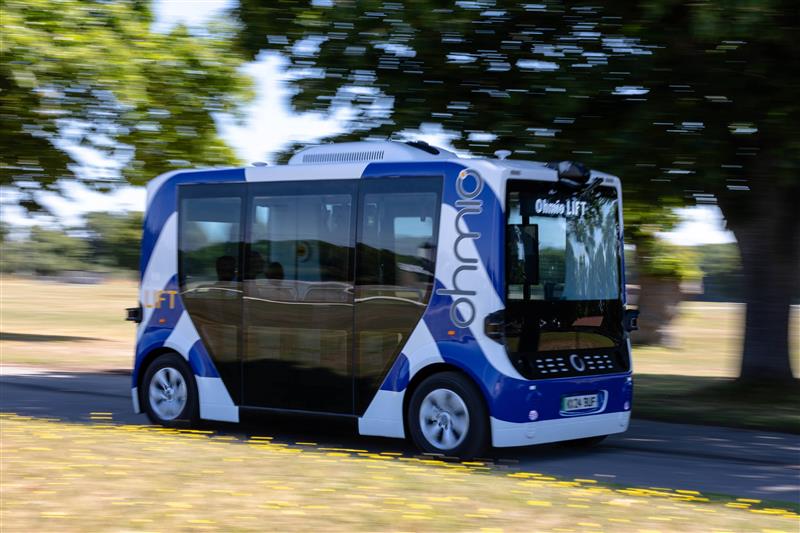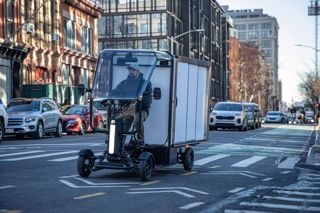Suffolk County Council will investigate the feasibility of incorporating self-driving shuttles into its transport network, using funding from the Government.
The Adastra Feasibility Study is one of 14 studies to have received funding and support from the UK Government and industry through the Connected and Automated Mobility CAM Pathfinder Feasibility Studies (FS) Competition, delivered by Innovate UK and Zenzic.
The project will see Suffolk County Council work with city planners from the 'Mobility Hub' delivery partner, Smart City Consultancy, to explore the viability of deploying self-driving shuttles as part of a county-wide Mobility Hub network.
Assessing the technical, operational, and regulatory requirements for integrating autonomous shuttles into existing transport systems, the study will combine in-depth feasibility studies with proactive stakeholder engagement to refine the business case for the use of self-driving shuttle services in the county.
This will include defining customer, legislative, and operational requirements for autonomous shuttle deployment, producing preliminary design concepts, executing comprehensive cost and market analysis and undertaken a series of public engagement consultations.
Councillor Chris Chambers, cabinet member for transport strategy, planning and waste at Suffolk County Council, said: “The use of self-driving, environmentally-friendly shuttles operating alongside traditional services as part of a Mobility Hub network is a key component of our strategy, and Adastra will enable us to test our ideas with passengers and other stakeholders, giving people the chance to see the shuttles in action and build out the longer-term business case.”
One of the main aims of the study is to ensure that technical analyses and market insights directly feed into an actionable business case, paving the way for commercial deployment and setting a benchmark for autonomous transport solutions in rural settings.
The Feasibility Studies (FS) Competition is part of the £150 million CAM Pathfinder programme which was announced in the Government’s Industrial Strategy.
Mark Cracknell, programme director at Zenzic, said: “The deployment of Connected and Automated Mobility solutions in rural towns and cities has the potential to improve accessibility, reduce emissions, and create a more reliable and inclusive transport network - the Adastra project will be key to demonstrating this.
“We are looking forward to working with the project consortia as they further develop their business case, demonstrate the commercial readiness of the service, and provide vital insight into the opportunities presented by the deployment of CAM solutions in regions throughout the UK.”
Project Navigates (Networked Autonomous Vehicle Integration and Governance with Advanced Technology and Security) is a separate project that will assess the technical and commercial case for Regional Remote Service Operator Control Centres (RSOCCs).
Similar to air traffic control centres, a regional RSOCC would oversee fleets of driverless vehicles operating with No User in charge (NUiC). This centre would monitor multiple vehicles in real-time, intervene when necessary and help the public sector coordinate services across different regions and use cases.
The project will be led by Belfast-based cybersecurity specialists Angoka, in partnership with low-emission transport experts Cenex.
The Government recently launched a consultation to help shape the future of self-driving vehicles, with on-the-road trials due to start next year.
The consultation follows the recent Government decision to fast-track pilots of self-driving passenger vehicles to spring 2026.






















Login to comment
Comments
No comments have been made yet.